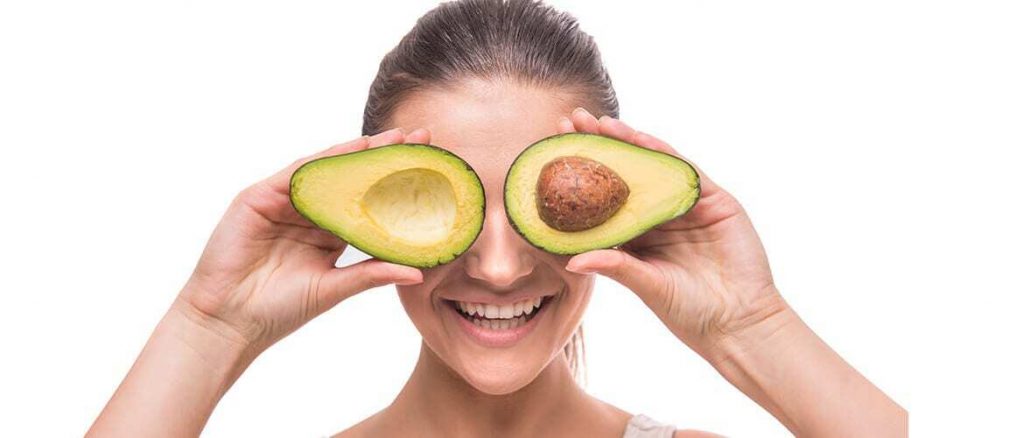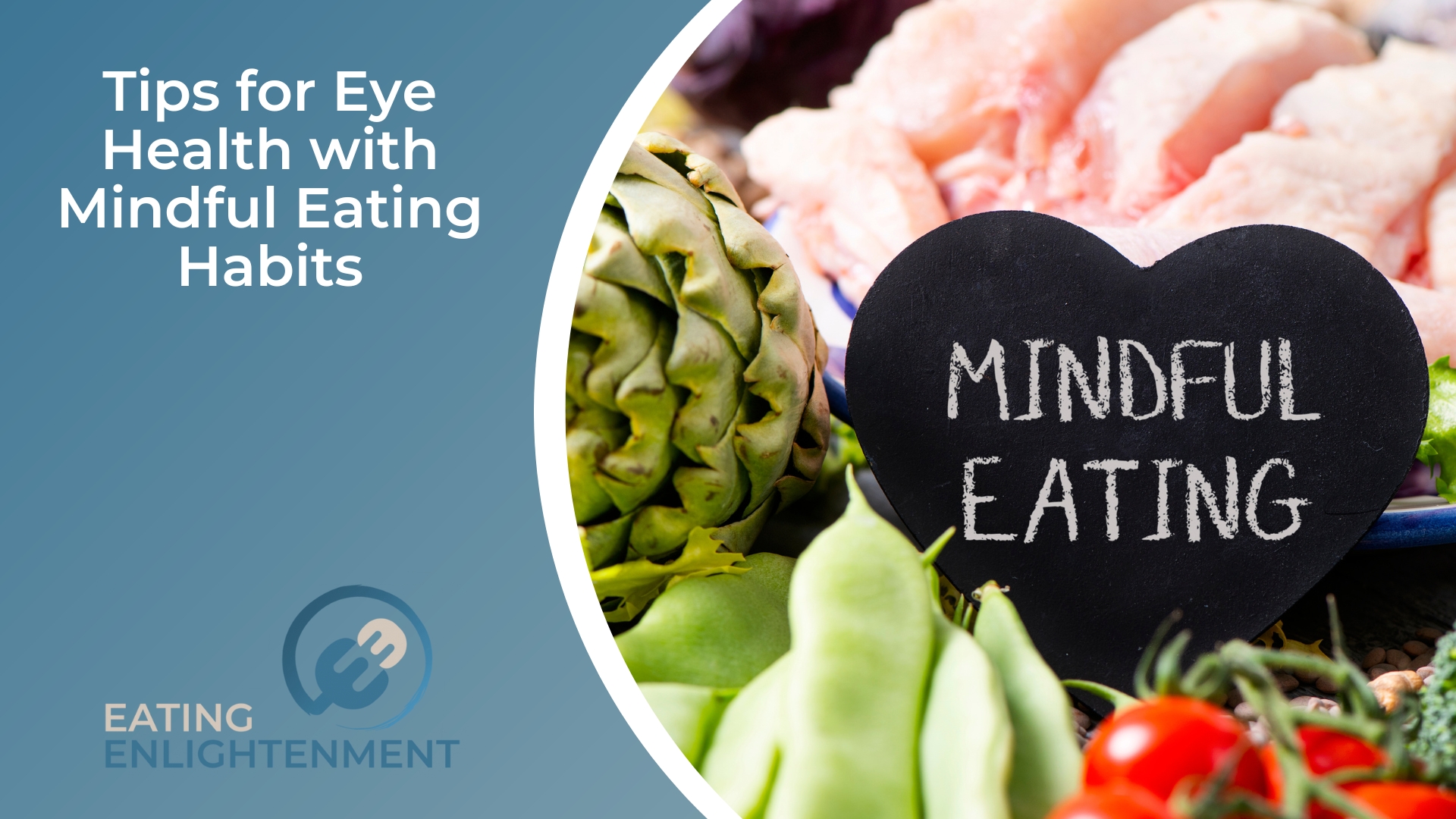Did you know what you eat could be the key to better eye health? Often, we overlook our diet’s profound influence on our vision and overall ocular well-being.
While it’s commonly thought that declining eye health is just an inevitable part of getting older, the reality is quite different. Our dietary choices play a crucial role in maintaining the health of our eyes.
From safeguarding against common vision problems to warding off age-related eye conditions, the foods we consume significantly impact us.
In this blog post, we’ll show you how eating the right foods can help keep your eyes healthy. We’ll show you how making smart choices in your diet can do wonders for your eyes.

Why Eye Health Matters
Keeping your eyes healthy is a big deal. One of the best ways to do this is by having regular eye check-ups.
These check-ups help catch eye problems early on so you can get treatment quickly and keep your eyes seeing clearly.
Another important part of keeping your eyes in good shape is watching what you eat. Eating too many snacks high in sugar or unhealthy fats isn’t good for your eyes.
It’s like giving them the wrong kind of fuel. Instead, filling your plate with various healthy foods can make a difference.
Connection Between Nutrition and Eye Health
Eating a lot of processed foods, foods high in fat, sugar, and salt, can lead to health problems like diabetes and high blood pressure, and these can make your vision worse.
But don’t worry, there are good foods for your eyes too! Foods rich in Omega-3 fatty acids, Lutein, Zeaxanthin, and Zinc are great for keeping your eyes healthy.
They help lower the risk of eye diseases like macular degeneration and cataracts and strengthen your vision.
These nutrients are also good for the health of your retina and they protect your eyes from harmful light.
So, eating the right foods is important for keeping your eyes healthy. Choosing fresh, whole foods over processed ones is a good start.
This helps not only your vision but also your overall health. Remember, a balanced diet means happy eyes!
Introducing Mindful Eating for Eye Health
In our fast-paced society, mindful eating can be a powerful tool for eye health. This practice involves fully engaging with our food, savoring each bite, and being aware of hunger and fullness cues.
Mindful eating promotes healthier food choices and prevents overindulgence in snacks that are detrimental to eye health.
What is Mindful Eating?

Mindful eating focuses on consuming food with full attention to taste, texture, and smell. It reduces stress, improves digestion, enhances food satisfaction, and increases awareness of satiety cues. This approach can be practiced with any eating style and is accessible to everyone.
Developing a Healthy Relationship with Food
Having a good relationship with food is more than just picking healthy food. It’s about creating habits that make us feel good and keep us healthy. This means enjoying foods that are good for our eyes and whole body without feeling guilty.
One great way to do this is by planning your meals. This helps you think about what you’ll eat in advance, ensuring you have everything for tasty, eye-healthy meals.
Keeping a food journal can also be a big help. When you write down what you eat, you notice your eating habits and how different foods make you feel.
Listening to your body is super important, too. Pay attention to when you’re hungry or full. This helps you eat just the right amount and for the right reasons – not just because you’re bored or emotional.
It’s okay to eat for comfort sometimes, but it’s also good to find other ways to deal with emotions, like going for a walk or chatting with a friend.
In short, a healthy relationship with food is about balance, enjoying what you eat, and listening to your body’s needs.
How to Reconize Emotional Eating Patterns
The first step to stop emotional eating is to notice when and why you do it. You could reach for snacks when bored in the afternoon or feel lonely at night. Keeping a simple note of when you eat can help you see these patterns.
Once you know what triggers your emotional eating, try different things to handle those feelings. If you’re bored, maybe try a new hobby or a quick walk.
If you’re feeling lonely, a chat with a friend might help. And if you’re sad, doing something you enjoy or talking to someone can be better than eating.
It’s also good to have healthy snacks around when you want to eat. And remember, it’s okay to eat for comfort sometimes. The key is not to make it your only way to deal with feelings.
Physical vs Sensory Hunger Cues
Have you ever wondered if you’re hungry or just want to eat because you see or smell something tasty? That’s the difference between true hunger and what we can call ‘sensory hunger.’
True hunger is when your body needs food. You might feel your stomach growling or get a bit grumpy when you’re starving.
On the other hand, sensory hunger is when you want to eat just because something looks or smells good, even if you’re not actually hungry.
It’s important to tell the difference between these two. When you’re starving, go ahead and have a meal.
But if it’s just because of seeing or smelling food, try to wait until you’re hungry. This can help you avoid eating when you don’t need to, which is great for keeping your eyes and the rest of you healthy.
Healthy Food Choices for Eye Health
Make sure to have plenty of leafy greens, like spinach and kale. They’re packed with good stuff for your eyes.
Don’t forget about fatty fish, too, like salmon and tuna. Nuts, seeds, and citrus fruits like oranges are also great choices.
They give you vitamins and minerals that help prevent eye problems. Add some color to your plate with vegetables like carrots and bell peppers.
They’re not just pretty; they’re full of nutrients that help keep your eyes in shape. So, remember, eating a mix of these tasty and healthy foods is a big win for your eyes!



